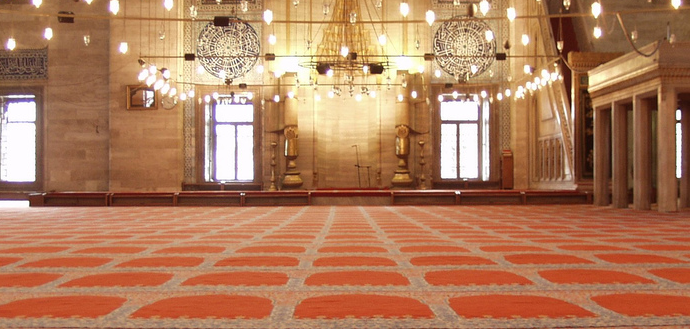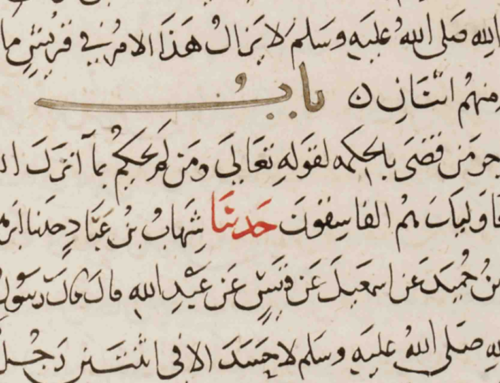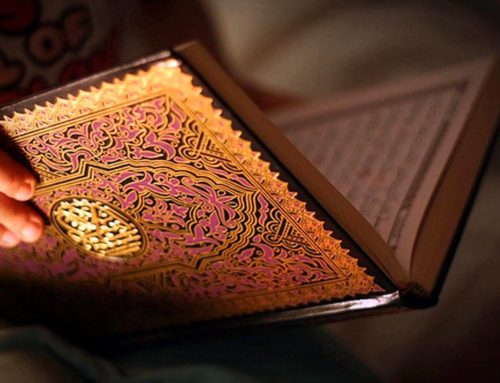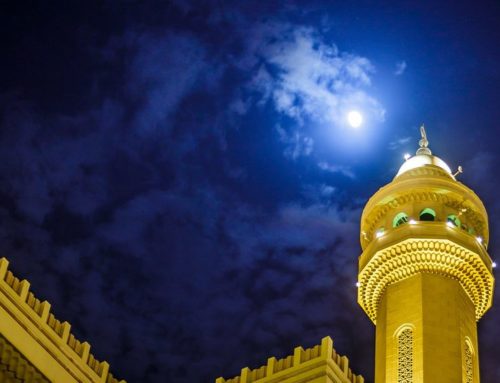By Mufti ‘Ashiq Ilahi al-Bulandshehri al-Madani
Translared by by Ismaeel Nakhuda
(Translator’s Note: Living in the vicinity of the Prophet’s Mosque in Madinah, Mawlana Mufti ‘Ashiq Ilahi al-Bulandshehri (1925-1999)—a respected and acclaimed student of the North Indian hadith master Shaykh al-Hadith Mawlana Muhammad Zakariyya al-Kandhalawi—was a prolific writer, a Hanafi mufti, and a hadith scholar of great magnitude.
Originally from Bulandshehr, India, Mufti ‘Ashiq Ilahi was a graduate of the world-acclaimed madrassah Mazahir ‘Ulum Sahranpur and spent years serving Islam by teaching at numerous Islamic seats of learning across north India, and also—on the request of Mufti Taqi Usmani’s father, Mufti Muhammad Shaf‘i Usmani—at Dar al-‘Ulum, Karachi, where among many other duties he was given the responsibility of the madrassah’s superb Dar al-Ifta.
A murid of Shaykh al-Hadith Mawlana Muhammad Zakariyya al-Kandhalawi, Mufti ‘Ashiq Ilahi later migrated to Madinah where he remained constantly fulfilling his life-long preoccupation of imparting knowledge, traversing the path of suluk and authoring several books, including the well-received and popular Zad al-Talibin.
For numerous years after the demise of Shaykh al-Hadith, Mufti ‘Ashiq Ilahi, together with Shaykh al-Hadith’s other students, notably Mawlana ‘Abd al-Hafiz al-Makki, diligently added extra notes and other beneficial additions to the shaykh’s commentary of Imam Bukhari’s Sahih, Lami‘ al-Darari. The work carried out by these scholars was done at the behest of Shaykh al-Hadith prior to his demise and reflects their standing in their shaykh’s eyes and serves as a monument to their love for and dedication to hadith. This multi-voluminous commentary of Sahih al-Bukhari is currently being published under the title Al-Kanz al-Mutawari fi Ma‘adin al-Lam‘i al-Dirari.
Mufti ‘Ashiq Ilahi died in Madinah at the ripe old age of 80 and was buried in Baq‘i al-Garqad in 1999. May Allah shower him with His mercy, make his grave a garden of paradise and grant us all the pleasure of being buried close to the best of creation in the shadow of the green dome. Amin.
The following is a translation of a brief passage from a small treatise by the respected mufti entitled Islami Ahkam Seh Pehlutahi Karnehwalo Keh Hileh Awr Bahaneh (The Excuses and Pretexts of Those Who Twist Islamic Rulings), published by Dar al-Ishat, the publishing house owned by the family of Mufti Taqi ‘Usmani.
This article has been written for the benefit of Deobandi readers; in particular those who court the Ahl al-Bid‘ah with aspirations of bridging differences but in reality are only driving a chasm between themselves and the spiritual and academic legacy of their Akabir.
What Mufti ‘Ashiq Ilahi writes is interesting. He mentions the fallacy of arguments by ‘ulama—employed as imams and teachers at institutes and mosques run by the Ahl al-Bid‘ah—who remain indifferent to bid‘ah and justify their actions under the pretext of wanting to rectify their students and congregation at an appropriate, but absent, later time.
In light of modern socio-Islamic tendencies the net could be cast further afield to include those ‘ulama who conduct light-study courses with the ‘ulama of the people of Bid‘ah (as teachers), beckon to their invites (as speakers at conferences), answer questions for their fatwa sites (usually on non-controversial “safe” topics), and promote their writings and translations thus legitimising the Ahl al-Bid‘ah among Deobandi youth.
In fact, the above would not be an issue as long as the ‘ulama concerned would, while adhering to the Deobandi maslak, promote it and use their positions to actively rectify bid‘ah rather than confining themselves to discussing “safe” issues.
For a number of years, this sorry state of affairs has continued, smudging the tract of the Akabir and confusing large numbers of young Western-born Deobandis (who have already been nourished on a lethal mix of happy-clappy, flower-power, pop-cum-nashid singers). It seems the Deobandi maslak is being resold to the Deobandis in the West with a deadly cocktail of bid‘ah. A dangerous door has been opened, which needs to be firmly shut. “Let the people of insight take heed.”)
“Some people are seen to participate in bid‘ah or in the least remain silent from describing such actions to be bid‘ah. When they are asked, ‘Why do you allow such bid‘ah to continue? Why do you participate in them? And why do you deal with the issue hypocritically?’ They answer, ‘I am slowly bringing them to the [right] path. When they feel comfortable with me, I will explain to them the truth and stop them from bid‘ah.’
Firstly, it is completely impermissible to commit a sin and participate in bid‘ah to bring others to the [right] path. One should rectify others by adhering to one’s faith while avoiding sins and keep away from bid‘ah rather than flowing in the current of bid‘ah together with the lay-public, and watching sins and bid‘ah [taking place] and—in spite of having the ability—not stopping [these things from happening]. This is clearly against the demands of iman. Committing sins oneself to bring others to the path is not an act of religiosity or tactful behavior. The shari‘ah has not granted permission for this.
Secondly, when one continues indulging in bid‘ah for some time, or remains silent while bid‘ah take place in front of one’s eyes, then there will be no way left for islah (rectification). They [the people of bid‘ah] will never listen, and make counter allegations saying, ‘Oh, this action has today become a bid‘ah? It wasn’t a bid‘ah before when you yourself used to participate or remained silent?’ Additionally, what guarantee does one have that one will be among such people when one will consider oneself able to say the truth?
In reality, this excuse is made by those who undertake jobs as imams and teachers among the people of bid‘ah. Their purpose is getting a job. They tolerate bid‘ah to continue with their jobs and explain to people that once they become familiar with them [their congregation and students] then they will bring them to the [right] path. They have different aspirations inside, and on the exterior furnish an excuse of wanting to rectify them. Every person should check his own heart and judge himself.”







as-salamu `alaikum brothers
congratulations on your new site. may Allah give you success. Amin.
I was wondering which ‘light-study courses’, conferences and fatwa-sites brother ismaeel nakhuda had in mind when he penned the introduction above?
[…] Participating in Bid‘ah With the Intention of Reforming […]
Salam, may Allah give us and all the muslims strength to avoid bid’ah